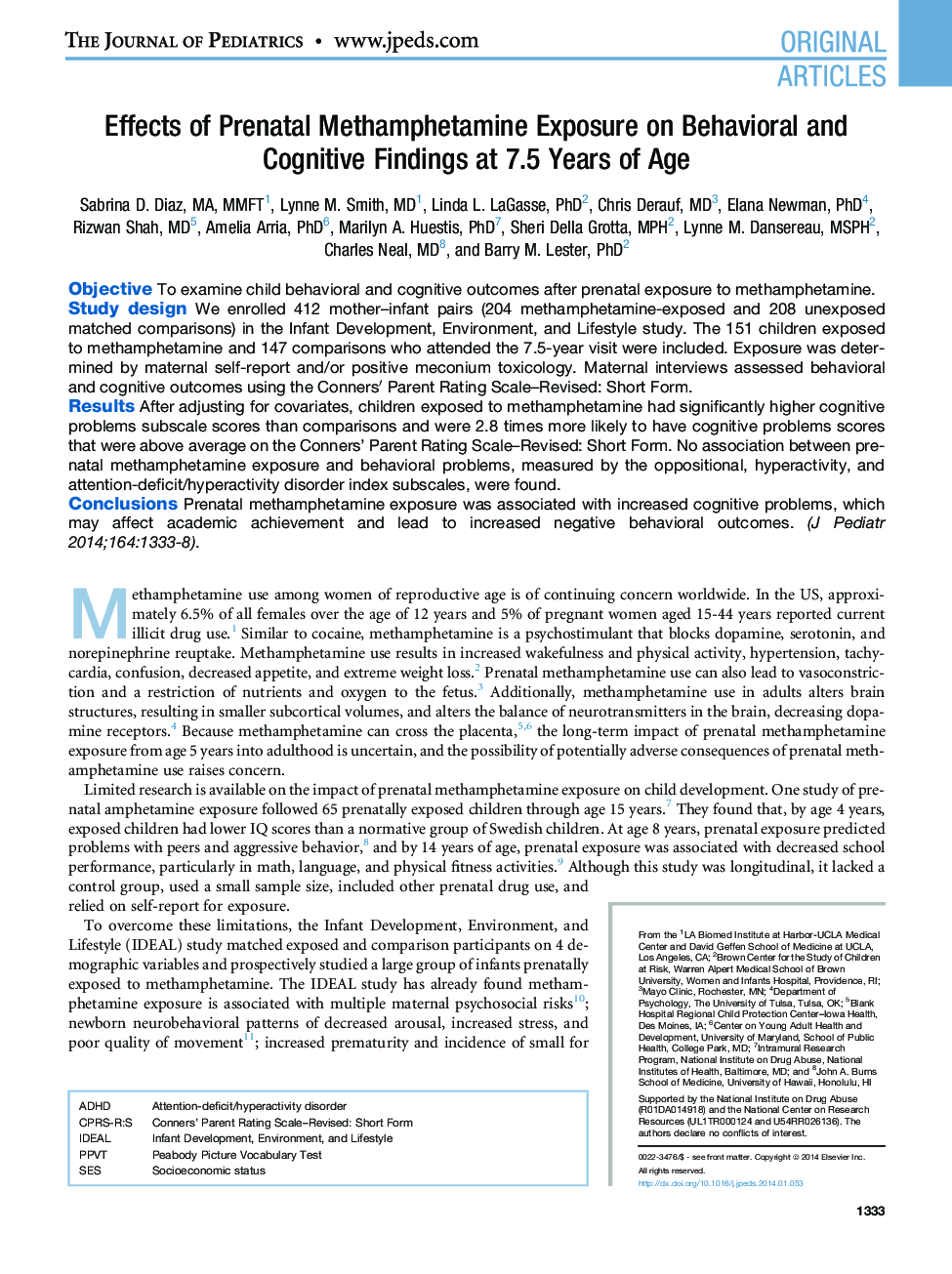| Article ID | Journal | Published Year | Pages | File Type |
|---|---|---|---|---|
| 6220641 | The Journal of Pediatrics | 2014 | 6 Pages |
ObjectiveTo examine child behavioral and cognitive outcomes after prenatal exposure to methamphetamine.Study designWe enrolled 412 mother-infant pairs (204 methamphetamine-exposed and 208 unexposed matched comparisons) in the Infant Development, Environment, and Lifestyle study. The 151 children exposed to methamphetamine and 147 comparisons who attended the 7.5-year visit were included. Exposure was determined by maternal self-report and/or positive meconium toxicology. Maternal interviews assessed behavioral and cognitive outcomes using the Connersâ² Parent Rating Scale-Revised: Short Form.ResultsAfter adjusting for covariates, children exposed to methamphetamine had significantly higher cognitive problems subscale scores than comparisons and were 2.8 times more likely to have cognitive problems scores that were above average on the Conners' Parent Rating Scale-Revised: Short Form. No association between prenatal methamphetamine exposure and behavioral problems, measured by the oppositional, hyperactivity, and attention-deficit/hyperactivity disorder index subscales, were found.ConclusionsPrenatal methamphetamine exposure was associated with increased cognitive problems, which may affect academic achievement and lead to increased negative behavioral outcomes.
